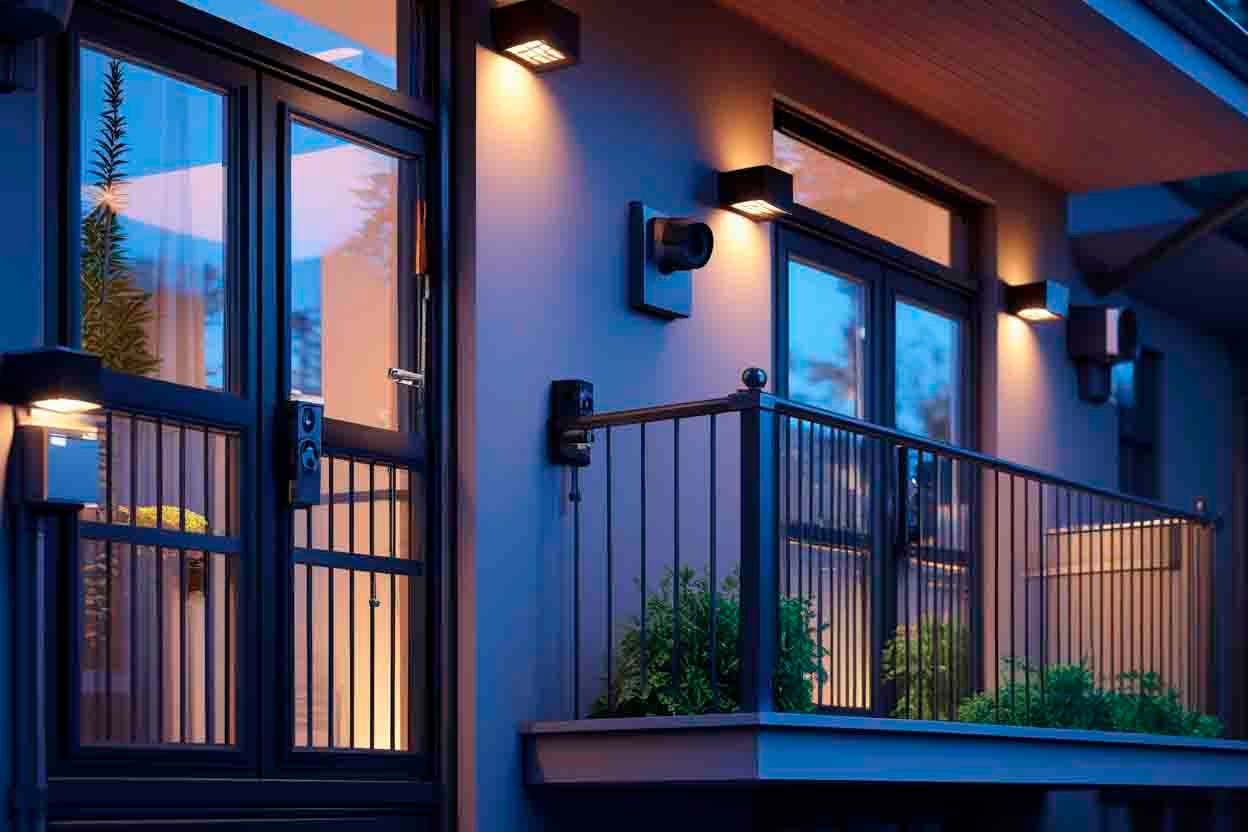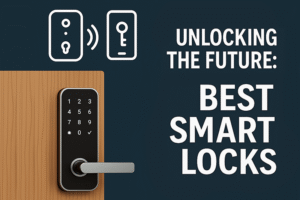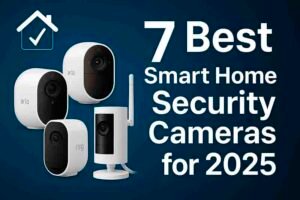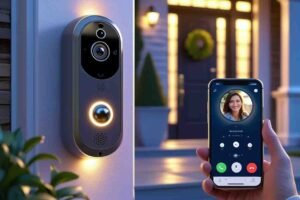Your home should be your safe space — a place where you can relax without worrying about unwanted visitors. Yet, windows and balconies are often the weakest points of entry for burglars. These entry points are often overlooked, especially in apartments and houses with upper floors, giving intruders an easy way in.
In this guide, we’ll share practical, budget-friendly, and effective tips to secure your windows and balconies so you can protect your home and sleep peacefully at night.
1. Install High-Quality Locks
A weak lock is an open invitation for intruders. Many standard window latches and balcony door locks can be forced open in seconds with basic tools. Upgrading to multi-point locking systems or key-operated locks greatly increases security by securing the frame at multiple points instead of just one.
- For sliding balcony doors, add a security bar, metal rod, or dowel in the track to physically block the door from sliding, even if the lock is compromised.
- If you live in an older building, consider having a locksmith inspect your locks — some older models can be bypassed without much effort.
2. Use Shatterproof or Reinforced Glass
Glass is often the weakest link in home security. If you’re renovating, replacing, or upgrading your windows and balcony doors, choose materials designed to resist force:
- Laminated glass has a plastic layer between two glass sheets, making it difficult to break.
- Tempered glass is heat-treated for strength and shatters into small, less dangerous pieces if broken — making it harder for intruders to enter quickly.
- Polycarbonate panels are extremely tough and impact-resistant, often used in commercial security.
Not only are these materials stronger, but they also make enough noise when damaged to alert you or neighbors.
3. Add Security Films
Security window films are a cost-effective way to reinforce your existing glass without replacing it. These transparent or tinted adhesive layers:
- Hold shattered glass together, slowing down an intruder’s entry
- Reduce visibility from the outside, making it harder to see valuables inside
- Provide UV protection, helping protect furniture and flooring from fading
Installation is simple, and many homeowners apply them themselves — though professional installation ensures a perfect fit and maximum durability.
4. Install Motion-Activated Lighting
Darkness is a burglar’s best friend. Installing motion sensor lights on balconies, patios, and near accessible windows can instantly deter unwanted visitors.
- Choose LED models for brightness and energy efficiency
- Angle them to cover entry points without shining directly into neighbors’ windows
- Some lights can be integrated with smart home systems, sending you an alert when triggered
The sudden flash of light often startles intruders and makes them feel exposed.
5. Use Security Cameras
Visible cameras can make a burglar think twice, while discreet models allow you to monitor activity without drawing attention. Modern Wi-Fi security cameras offer:
- Real-time viewing from your smartphone
- Motion detection with instant push notifications
- Cloud storage for recorded footage
- Two-way audio to speak to visitors or scare off intruders
Place cameras at angles that cover both the approach to windows and balcony entrances.
6. Secure Balcony Railings
Balcony railings are not just decorative — they can also be used as climbing aids. To make them more secure:
- Ensure they are firmly anchored and in good condition
- Add anti-climb spikes, trellis panels, or vertical bar extensions to make scaling harder
- Avoid leaving ladders, furniture, or objects near the balcony that could be used to climb up
7. Avoid Leaving Valuables in Sight
Burglars often look through windows and balcony doors to spot quick-grab items like laptops, jewelry, and cash. Reduce temptation by:
- Keeping blinds or curtains partially closed when you’re away
- Using frosted or decorative window film for privacy
- Moving valuable items out of direct sightlines
A home that looks empty and uninteresting is less likely to be targeted.
8. Plant Natural Barriers
For ground-floor balconies and windows, strategic landscaping can act as an effective deterrent. Thorny shrubs like roses or holly bushes make climbing or reaching in much more difficult. Dense greenery also:
- Increases privacy
- Enhances curb appeal
- Works year-round if you choose evergreen species
Just make sure plants don’t give intruders a hidden spot to crouch behind.
9. Set Up a Smart Home Alarm
Smart alarms have revolutionized home security. You can connect door and window sensors that trigger alerts whenever they’re opened unexpectedly. Many systems also:
- Allow remote arming and disarming from your phone
- Integrate with cameras, lights, and voice assistants
- Include loud sirens that can scare away intruders instantly
Some even alert emergency services automatically if you’re not home.
10. Don’t Forget the Basics
It may sound obvious, but a large number of break-ins happen simply because windows or balcony doors were left unlocked. Make locking them part of your daily routine — even if you’re only stepping out for a few minutes.
- Get in the habit of a quick security check before leaving or going to bed
- Teach all household members, including children, about the importance of keeping entry points locked
Sometimes, the simplest habits are the most effective protection.
Frequently Asked Questions
1. Are upper-floor windows and balconies safe from burglars?
Not entirely. Skilled intruders can use drainpipes, ladders, or adjacent structures to reach them. Secure them like you would on the ground floor.
2. What is the cheapest way to secure a balcony?
Adding a security bar for sliding doors and installing motion sensor lighting are inexpensive yet highly effective.
3. Can window security film really stop break-ins?
It won’t make glass unbreakable, but it delays entry, making it harder for intruders and giving you more time to react.
4. Should I install cameras for windows and balconies?
Yes. Even a small visible camera can deter burglars, and modern Wi-Fi models let you watch live feeds on your phone.
5. Are smart alarms worth it for windows and balconies?
Absolutely. They send instant alerts if someone opens or tampers with your windows or balcony doors.
Final Tip
Security is about layers. The more barriers you create, the harder it becomes for an intruder to succeed. Combining strong locks, good lighting, and surveillance can make your windows and balconies nearly burglar-proof.





